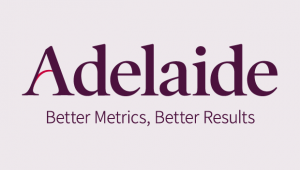Rocket Fuel Hits Back At ‘Sensational Headlines’ In Bot Traffic Row
by on 28th May 2014 in News

Under-fire Rocket Fuel has moved to underline its credentials in the “arms race” between ad tech players and “scammers” after being cited in a critical FT article claiming a recent it participated in for Mercedez-Benz was plagued with click fraud – one that it has labelled as “sensational”.
Rocket Fuel has issued a statement in reaction to an FT article which ran with the headline: “Mercedes online ads viewed more by fraudster robots than humans”.
The article claims Rocket Fuel inadvertently served ads on fraudulent websites as part of the campaign, but the ad tech company has come out strongly claiming: “Bots are a real problem, but less so than sensational headlines on top of non-news.”
Earlier this week, the FT published the story – apparently sourced from a report for Mercedez-Benz by UK security firm Telemetry based on a sample of 365,000 ad impressions – claiming over half (57%) of the campaign ads were “viewed” by automated computer programmes (or bots) rather than real people.
The article does state the ads were “inadvertently” served by Rocket Fuel, and later goes on to state that over the course of the entire ad campaign, only 6% of ad impressions were deemed to be “questionable”, and further quotes the auto-manufacturer as stating that Rocket Fuel “refunded us for the suspect impressions”.
Rocket Fuel attempts to put findings into context
However, the strongly-worded statement from Rocket Fuel reads: “A recent Financial Times article cites Mercedes-Benz as estimating that fewer than 6% of an online advertising campaign served by Rocket Fuel were labeled as questionable, yet the headline suggests an apocalypse of digital advertising.”
It goes on to read: “Rocket Fuel takes an aggressive posture to screen bots out of the ad space... We reject approximately 40% of all ad space daily due to its failure to pass our own bot and brand-safety screens.”
Rocket Fuel’s statement goes on to try to contextualise the FT claims over the amount of “questionable” ad impressions it delivered, claiming it rejected much more dubious ad impressions than it accepted.
Its statement goes on to read: “In February of 2014, when the Financial Times suggests that we delivered approximately 200,000 impressions to bots, we rejected 497,827,451,520 [bot] impressions while evaluating approximately 1.1 trillion impressions for our customers' ads.”
Rocket Fuel went on to highlight its proactive attempts to negate the activities of “scammers” in the “arms race” between them and legitimate players in the ad tech sector, highlighting its recent announcement that it will release a free bot-detection tool to further help advertisers keep bots out of their results.
Scale of click fraud problem
This publication has been vocal in its assertion that “fake clicks” are rampant within the online ad tech sector, with ExchangeWire global editor Ciaran O’Kane explaining how it relates to others ills within the sector in an earlier polemic entitles: “Why The ‘Good Internet’ And Programmatic Premium Will Cut Out The Rotten Core Of Digital Advertising”.
While this is the belief of ExchangeWire, it would also contend that Rocket Fuel is not on its own in helping to match advertisers with fake ad requests, rather it is a case of misfortune that it has been called out so publicly in a mainstream publication such as the FT.
The same headlines could be written about countless other companies that operate in this space, an issue that ExchangeWire discussed with Thomas Servatius, IPONWEB, head of client services, in a piece discussing just how big of a problem click fraud is in ad tech, and some of the reasons why it remains, despite everyone being aware of it.
This also appears to be a point of view of others within the industry with Andrew Goode, COO of security firm Project Sunblock, issuing a statement reading: “This is a unfortunate case for Mercedes, but it is far from alone in its fight against the advertising botnets.
“Complex computer programmes are preying on big advertising budgets as marketers flock online in order to increase brand visibility. So much so, that industry bodies now predict that at least a third of all online traffic is generated by robots.
“The issue is that there is a real lack of visibility and transparency around where digital ads end up once they’re fed into industry ad exchanges. These ad exchanges deal with the buy and sell of ad impressions, but they themselves have no commitment or ability to identify and weed out fraudulent publishers, and so the robots go on undetected.”
Ad FraudAd ServerAdvertiserAnalyticsattributionDigital MarketingDisplayMartechMedia SpendProgrammaticTargetingTrading








Follow ExchangeWire